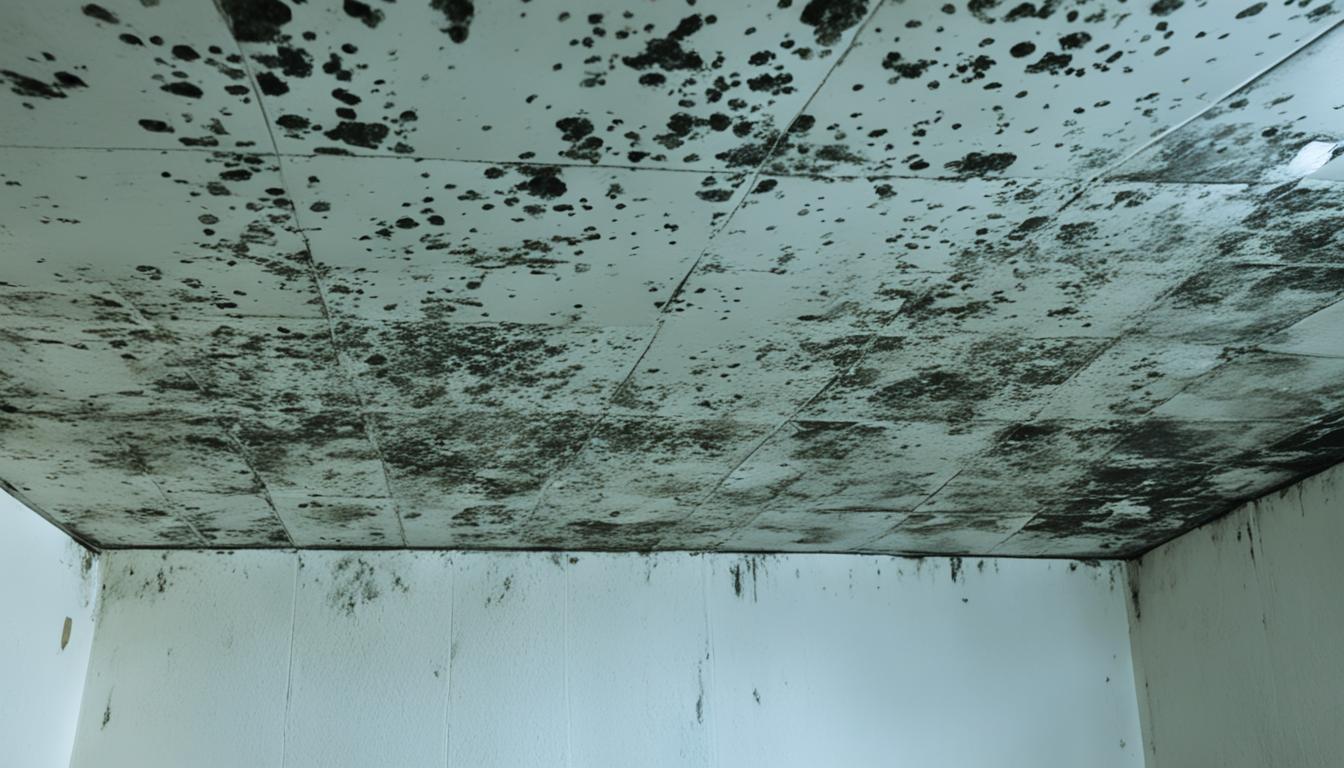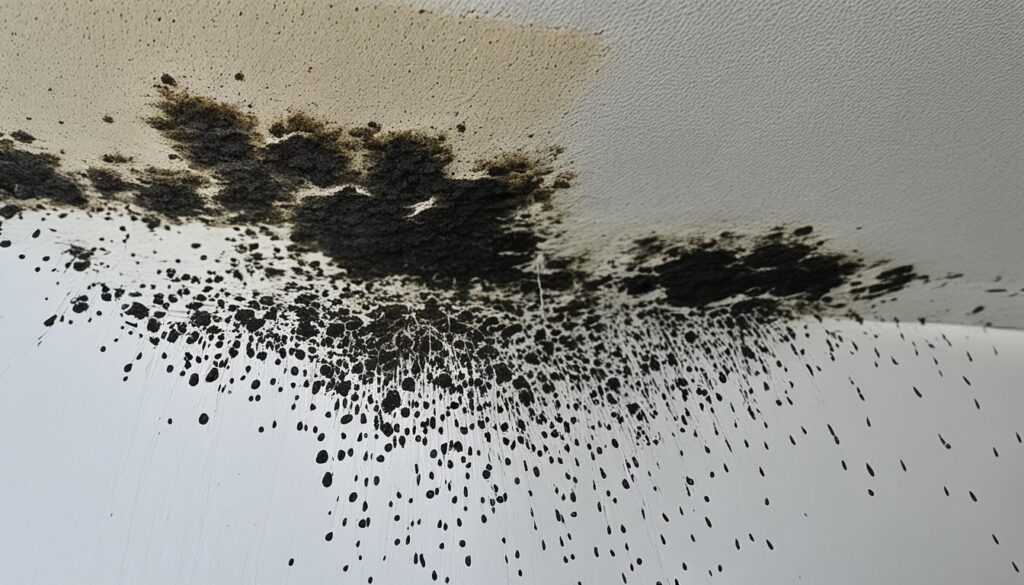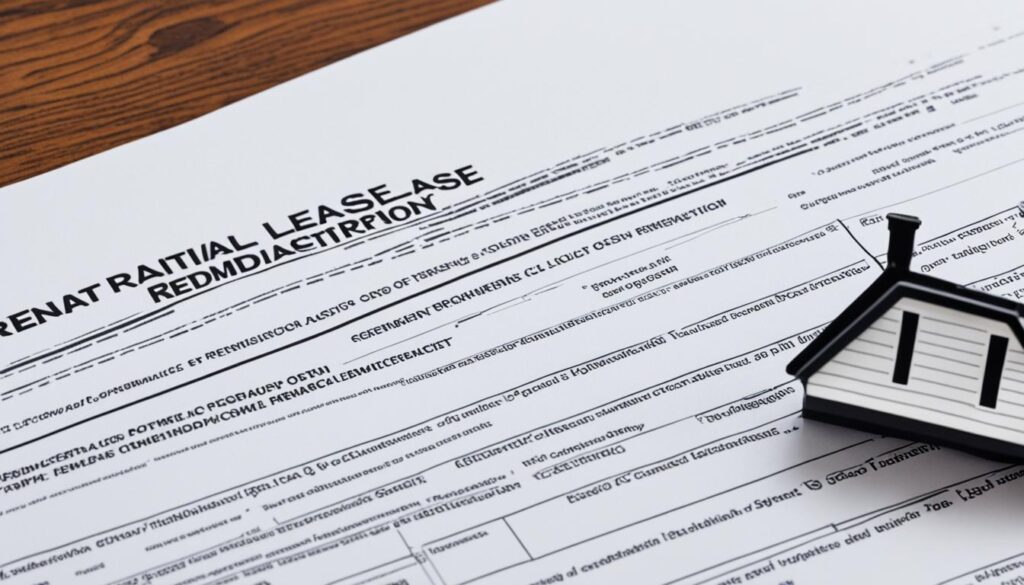
Tenant Reports Mold to Landlord: Next Steps
Discovering mold in your apartment can be unsettling, but taking prompt action is crucial. This article will guide you through the necessary steps to protect your rights as a tenant after reporting mold to your landlord. By understanding your responsibilities and knowing what to expect, you can ensure a safe and healthy living environment.
When you discover mold in your apartment, it is essential to report it immediately to your landlord. Mold can pose health risks and may indicate underlying issues with the property. By promptly informing your landlord, you initiate the process of addressing the problem.
- Report mold in your apartment to your landlord as soon as possible.
- Mold can present health risks and may indicate underlying issues.
- By reporting mold promptly, you initiate the process of addressing the problem.
- Understanding your rights as a tenant is crucial in mold-related situations.
- Seek professional help if necessary to ensure proper assessment and remediation.
Mold Inspection: Assessing the Issue
When it comes to mold issues in rental properties, a thorough mold inspection is crucial. Not only does it help assess the extent of the problem, but it also ensures the safety and well-being of tenants. Let’s dive into the importance of mold inspections and the responsibilities of both landlords and tenants in this process.
For tenants, a mold issue in their rental property can cause serious health concerns and may even lead to legal disputes. By promptly reporting the issue to their landlord, tenants are taking the first step in resolving the problem. However, it’s essential to understand that the presence of visible mold does not necessarily indicate the full extent of the issue. This is where a professional mold inspection becomes invaluable.
A comprehensive mold inspection involves a qualified expert evaluating the entire property to identify any hidden mold sources, assess the air quality, and determine the potential health risks. The inspector will carefully examine various areas, such as walls, ceilings, basements, and ventilation systems, to establish the severity of the mold problem.
During the inspection, samples may be collected for further laboratory testing to identify the specific type of mold present. This information allows for a better understanding of the potential health risks associated with the mold, as different types can have varying effects on individuals. It also helps in developing an effective remediation plan.
While tenants have the right to request a mold inspection, landlords also have responsibilities in this process. They should promptly address tenant complaints, prioritize the health and safety of their tenants, and conduct regular inspections to identify and address any mold issues proactively. If a landlord fails to meet these obligations, legal actions can be taken by the tenant.
Key Points:
- A mold inspection is essential to assess the full extent of a mold problem in a rental property.
- Visible mold does not necessarily indicate the severity of the issue.
- A professional mold inspection involves evaluating the entire property, collecting samples, and determining potential health risks.
- Tenants have the right to request a mold inspection, and landlords have a responsibility to address mold issues promptly.
Having understood the importance of mold inspections, let’s now explore the rights and responsibilities of tenants when it comes to dealing with mold in their apartment.
Tenant Rights and Responsibilities
When it comes to dealing with mold in your apartment, it’s important to understand your rights as a tenant and the responsibilities that come with it. This section will outline the key aspects of tenant rights and provide guidance on how to navigate mold issues with your landlord.
1. Landlord’s Duty to Disclose Mold Issues
Your landlord has a legal obligation to disclose any known mold issues in the rental property. This includes informing you about any past or ongoing mold problems, as well as providing details on any remediation measures taken. If your landlord fails to disclose this information, it can be considered a breach of their duty.
2. Tenant’s Right to a Safe and Habitable Living Environment
As a tenant, you have the right to live in a safe and habitable environment. This includes protection against health hazards such as mold. If mold growth is present in your apartment and it poses a threat to your health or safety, it is the responsibility of your landlord to address the issue promptly. You have the right to request mold remediation and expect your landlord to take appropriate action.
3. Steps to Protect Your Rights
If you suspect or discover mold in your apartment, it’s essential to take the following steps to protect your rights:
- Notify your landlord: As soon as you notice mold growth, report it to your landlord in writing. Be sure to keep a copy of the communication for your records.
- Document the issue: Take photos or videos of the mold growth, noting the date and time. This documentation can serve as evidence later on if needed.
- Request mold inspection: Ask your landlord to conduct a professional mold inspection to assess the extent of the problem. This will help in determining the appropriate remediation measures.
- Communicate in writing: Keep all communication with your landlord regarding the mold issue in writing. This ensures a clear record of your conversations and requests.
- Seek legal advice if necessary: If your landlord fails to address the mold problem or violates your tenant rights, consult with a legal professional who specializes in tenant rights to explore your options.

“Tenants have the right to a safe and habitable living environment. If you encounter mold in your apartment, it’s crucial to understand your rights and take the necessary steps to protect them.” – [Your Name]
Mold Remediation: Resolving the Issue
Mold remediation is a crucial step in resolving mold issues in an apartment. It involves the safe and effective removal of mold to ensure a healthy living environment for the tenant. When faced with a mold problem, it is important for both the tenant and the landlord to take prompt action to address the issue.
The process of mold remediation typically involves the following steps:
- Identification and assessment: A professional mold inspector will assess the extent of the mold problem and determine the appropriate course of action.
- Containment: To prevent the spread of mold spores, the affected area is carefully contained using plastic sheeting and negative air pressure systems.
- Removal and cleaning: Mold-infested materials, such as drywall or carpeting, are safely removed and discarded. The remaining surfaces are thoroughly cleaned using specialized cleaning agents.
- Air filtration: High-efficiency particulate air (HEPA) filters are used to remove mold spores from the air during the remediation process.
- Drying and prevention: Once the mold has been removed, it is important to thoroughly dry the area to prevent further mold growth. Additionally, addressing the underlying cause of the mold, such as a plumbing leak or excess moisture, is essential to prevent future mold issues.
- Testing and verification: After remediation, a post-remediation verification (PRV) inspection may be conducted to ensure that all mold has been successfully removed and the area is safe for occupancy.
It is important to note that mold remediation should be carried out by certified professionals with experience in handling mold issues. Attempting to remove mold without proper training and equipment can not only be ineffective but also potentially harmful to your health.
“Efficient mold remediation is critical in ensuring the safety and well-being of tenants. It is essential for landlords to address mold issues promptly and engage professional mold remediation services to protect their tenants’ health.”
By addressing mold issues through proper remediation, landlords demonstrate their commitment to maintaining a safe and habitable living environment for their tenants. Additionally, tenants play a crucial role in promptly reporting mold problems and cooperating with the remediation process to ensure a successful resolution.
In the next section, we will explore rental property mold policies and how they can impact the rights and responsibilities of both tenants and landlords.
| Benefits of Professional Mold Remediation: |
|---|
| 1. Thorough identification and removal of mold |
| 2. Safe and effective cleaning techniques |
| 3. Prevention of further mold growth |
| 4. Compliance with industry standards and regulations |
| 5. Peace of mind for tenants and landlords |
Understanding Rental Property Mold Policies
When it comes to dealing with mold issues in rental properties, it’s essential for tenants to understand the rental property mold policies that may affect their rights and responsibilities. Familiarizing yourself with these policies can help you navigate the situation effectively and ensure a safe living environment.
Here are some common questions related to rental property mold policies:
- What is the landlord’s responsibility in addressing mold problems?
- Are tenants required to report mold issues to their landlord?
- What actions can tenants take if the landlord fails to address mold problems?
- Can tenants be held responsible for mold issues?
- Are landlords obligated to disclose prior mold problems in the rental property?
Understanding the answers to these questions and knowing your rights can empower you as a tenant and help you navigate potential mold issues effectively. Take a look at the table below for a comprehensive overview of rental property mold policies:
| Question | Answer |
|---|---|
| What is the landlord’s responsibility in addressing mold problems? | The landlord is typically responsible for addressing and resolving mold problems in the rental property. They should promptly address any reported mold issues and take the necessary steps for mold remediation. |
| Are tenants required to report mold issues to their landlord? | Tenants are encouraged to report any mold issues they encounter in their rental property to the landlord as soon as possible. Promptly reporting mold problems can help prevent further damage and protect the tenant’s rights. |
| What actions can tenants take if the landlord fails to address mold problems? | If the landlord fails to address mold problems after proper notification, tenants may have legal remedies available to them. It is advisable to consult with an attorney or seek guidance from local tenant rights organizations to understand the options available. |
| Can tenants be held responsible for mold issues? | Tenants may be held responsible for mold issues if it is determined that their actions or negligence contributed to the mold problem. However, landlords are generally responsible for maintaining a safe and habitable living environment, which includes addressing mold problems that arise due to environmental factors beyond the tenant’s control. |
| Are landlords obligated to disclose prior mold problems in the rental property? | Landlord disclosure requirements regarding prior mold problems vary by jurisdiction. Tenants should review local housing laws or consult with legal professionals to understand the specific disclosure requirements in their area. |
By understanding rental property mold policies and knowing your rights and responsibilities, you can take proactive steps to address mold issues in your rental property and ensure a safe and healthy living environment.

Hiring Professional Help: Fix Mold Miami
If you’re dealing with mold issues in your apartment, it’s important to seek professional assistance to ensure a safe living environment. Fix Mold Miami is the leading provider of mold assessments, prevention, and remediation in Florida. With their expertise, they can help you effectively resolve your mold problems.
Whether you’ve reported mold to your landlord or you’re concerned about the presence of mold in your apartment, Fix Mold Miami can provide the services you need. Their team of experienced professionals is equipped with state-of-the-art technology and techniques to assess the extent of the mold issue and develop an effective remediation plan.
Fix Mold Miami understands the urgency of mold problems and offers prompt and reliable services. They prioritize your health and safety, ensuring that your apartment is thoroughly inspected and treated to prevent further mold growth. With their attention to detail and commitment to quality, you can trust Fix Mold Miami to deliver exceptional results.
Don’t let mold compromise your well-being. Contact Fix Mold Miami today at 305-465-6653 for a professional mold assessment in your apartment. Take control of your living environment and enjoy peace of mind knowing that your mold issues are being handled by experts.
Conclusion
Understanding your rights as a tenant and taking prompt action is crucial when dealing with mold issues in rental properties. Mold can pose serious health risks and compromise the habitability of your apartment. By following the steps outlined in this article, you can protect your well-being and ensure that your landlord fulfills their obligations.
First and foremost, it’s important to report any mold problems to your landlord or property management immediately. Document the issue in writing, including photographs if possible, and keep a record of all communication. This will help establish a timeline and ensure that your complaint is taken seriously.
Next, insist on a thorough mold inspection conducted by professionals to assess the extent of the problem. Your landlord is responsible for ensuring a safe and habitable living environment, and a proper inspection will identify the scope of the issue.
Finally, if mold remediation is necessary, your landlord should promptly address the problem and hire qualified professionals to handle the cleanup. As a tenant, you have the right to live in a mold-free environment, and your landlord is legally obligated to take appropriate action to resolve the issue.




